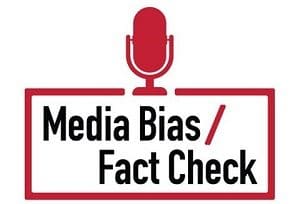LEAST BIASED
These sources have minimal bias and use very few loaded words (wording that attempts to influence an audience by using appeal to emotion or stereotypes). The reporting is factual and usually sourced. These are the most credible media sources. See all Least Biased Sources.
- Overall, we rate NBER least biased based on reasonably balanced editorial positions. We also rate them High for factual reporting due to proper sourcing and a clean fact check record.
Detailed Report
Bias Rating: LEAST BIASED
Factual Reporting: HIGH
Country: USA (45/180 Press Freedom)
Media Type: Organization/Foundation
Traffic/Popularity: Medium Traffic
MBFC Credibility Rating: HIGH CREDIBILITY
History
Founded in 1920, the NBER is a private, non-profit, non-partisan organization dedicated to conducting economic research and to disseminating research findings among academics, public policy makers, and business professionals. The NBER is the nation’s leading nonprofit economic research organization. Twenty-six Nobel Prize winners in Economics and thirteen past chairs of the President’s Council of Economic Advisers have held NBER affiliations. The current president and CEO is James M. Poterba.
Read our profile on United States government and media.
Funded by / Ownership
The National Bureau of Economic Research (NBER) is a nonprofit funded through donations and grants.
Analysis / Bias
In review, NBER reports news on economic research that is geared toward policymakers. The research includes original working papers such as The Political Economy of Responses to COVID-19 in the U.S.A. and this Industrialization and Urbanization in Nineteenth-Century America.
Editorially, they tend to favor left-leaning policies, but they cover both objectives and attempt to be as least biased as possible.
Failed Fact Checks
- None in the Last 5 years
Overall, we rate NBER least biased based on reasonably balanced editorial positions. We also rate them High for factual reporting due to proper sourcing and a clean fact check record. (D. Van Zandt 3/23/2017) Updated (3/26/2021)
Source: http://www.nber.org/
Last Updated on June 27, 2023 by Media Bias Fact Check
Do you appreciate our work? Please consider one of the following ways to sustain us.
or
Left vs. Right Bias: How we rate the bias of media sources


